Venice Slam Poetry Team Gets To Semifinals After A Loss In Quarters Last Year
May 1, 2023
Venice High’s Slam Poetry Team performed in the quarterfinals and semifinals in the 12th annual Get Lit Classic Slam on April 20. The team placed 2nd in the quarters and were knocked out in the semis.
Team members this year included seniors Summer Hamzeh and Camila Pensamiento; juniors Amy Carranza and Jaylen Germani; and sophomore Zara Seldon. Junior Jonathan Smith was their captain.
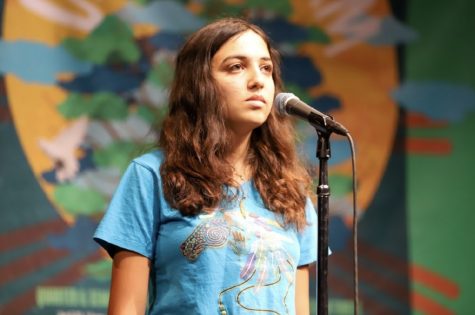
Instagram: @getlitpoet
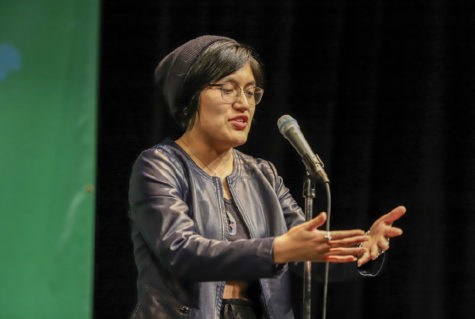
Instagram: @getlitpoet
Prior to competing in the slam, each poet was assigned to choose a classic poem as well as write original, spoken word responses. Months and months of hard work were put into the performances.
To prepare for their competition, the team hosted a poetry showcase in the auditorium on April 13. They wowed audiences from third to sixth period, and their performances were emotional and powerful; they conveyed their opinions on life and the world.
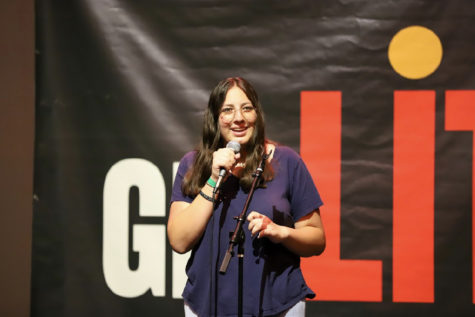
Instagram: @getlitpoet
Junior Jaylen Germani performed “Dreams of My Father” by Honorée Fanonne Jeffers and responded with an original response titled, “Who’s There.”
She started the poem in a more comedic tone then switched to a more serious tone when she addresses struggles she’s had without her father. She talked about her father left and how her mother was the only parent there for her.
“I wanted the audience to laugh in the beginning before I got to the deeper meaning in the poem,” she said after the performance. “It’s about something a lot of people can relate to, sadly.”
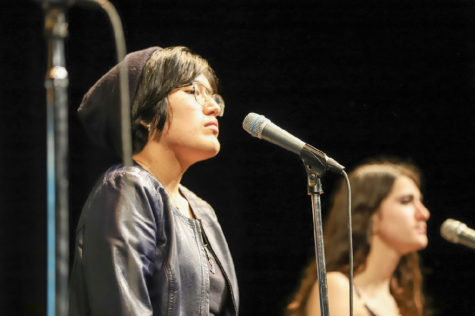
Instagram: @getlitpoet
Senior Summer Hamzeh showcased the classic “Fatima :: Solstice” by Hala Alyan and responded with “All The Arab Women I Know Are Exhausted.”
“I thought I would talk about the solidarity we have between Palestine and Syria,” she said. “The reason why I chose that classic was the walk, which was the forced displacement of hundreds of thousands of Palistinians in 1948.”
“I made that kind of connection to her [a friend from Syria] stories about her grandfather and her grandmother during that era, and I brought it over to the current experiences and conflicts we have now,” Hamzeh said.
The vulnerability one puts on the page is one small act of bravery itself, but to perform it in front of a bunch of high school students who won’t necessarily get what the art form of poetry is something else.
“You need to really put yourself into a poem for other people to really relate to it because humanity reaches humanity,” Germani said.
Co-Managing Editor Amy Carranza contributed to this story.

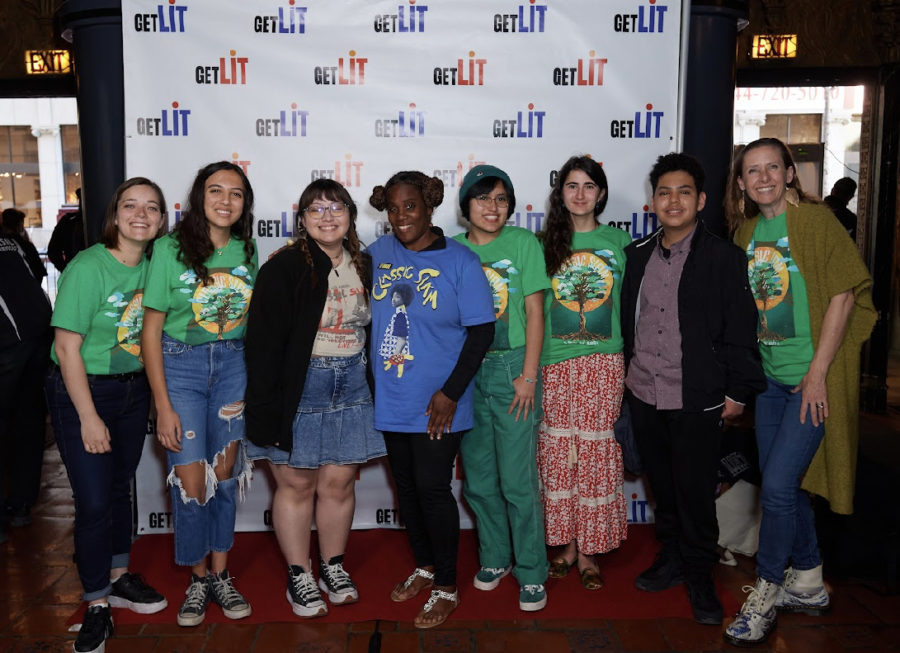







 Watch the full video o
Watch the full video o







![Taylor Swift’s newest album titled Midnights 🌙 takes a deeper look at the persona of Taylor herself, and according to reporter Alina Miller, although this isn’t Taylor’s best work, there are highlights worth mentioning about. 💫
Click the link in the bio to check out the full article!
[Photo Caption: Taylor Swift hits all top 10 spots on Spotify’s Billboard Top 100 chart]
#taylorswift #midnights #tiktok #antihero #spotify](https://scontent-iad3-1.cdninstagram.com/v/t51.29350-15/314744727_1556543814822641_1643591421920256829_n.jpg?_nc_cat=110&ccb=1-7&_nc_sid=8ae9d6&_nc_ohc=aDxNzq2snTYAX_gAl0G&_nc_ht=scontent-iad3-1.cdninstagram.com&edm=ANo9K5cEAAAA&oh=00_AfBa4EluVzZT-7d5rKyT6tLJo0UJuCvRJPSCMX71aeO38Q&oe=63965890)



 Watch the full video
Watch the full video 
